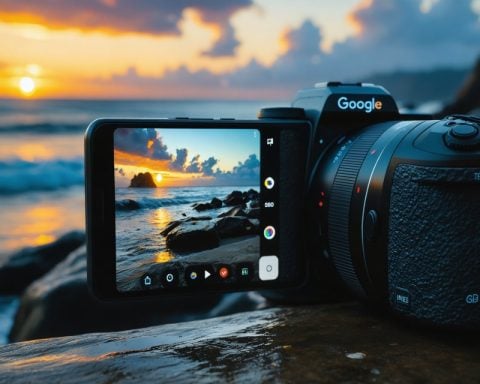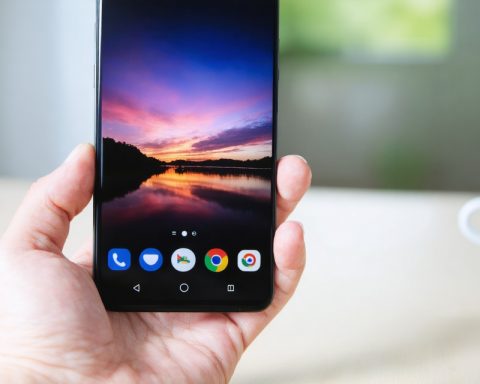- Three mothers in Brighton and Hove have launched a movement to ban smartphones for children under 14, aiming to set a precedent in the UK.
- The “Smartphone Free Childhood” campaign was initiated by a group of 14 parents striving for a safer upbringing for their kids.
- A key event at Cottesmore St. Mary’s Catholic Primary School highlighted the negative effects of excessive screen time, with input from mental health experts and pediatricians.
- Local authorities discussed the dangers of grooming and sextortion, emphasizing a need for cohesive no-smartphone policies in schools.
- The movement challenges parents to reconsider their children’s online presence, advocating for a revolution towards a safer digital future.
In the picturesque districts of Brighton and Hove, three determined mothers—Rani, Sarah, and Carla—have launched a groundbreaking movement to protect children from the digital dangers lurking in their pockets. Fed up with their kids’ exposure to inappropriate content, these pioneering moms have united to ban smartphones for children under 14, setting a national precedent in the UK.
What started as a concerned conversation in a WhatsApp group quickly evolved into a mission-driven campaign. These women spearheaded “Smartphone Free Childhood,” a local network comprising 14 passionate parents. Their aim? To empower their community and slow down the smartphone frenzy, crafting a safer, healthier upbringing for their kids.
Their efforts culminated in a pivotal event at the Cottesmore St. Mary’s Catholic Primary School. Key figures, including local MP Peter Kyle and experts like Dr. Eleanor Mason and Dr. Sharmila Jeyasingh, highlighted the severe impacts of excessive screen time. From mental health specialists to pediatricians, each expert painted a vivid picture of the risks—such as brain development issues and the darker side of digital abuse.
Policing representatives from Sussex revealed chilling insights into the threats of grooming and sextortion, while discussions spotlighted the pervasive issue of online pornography affecting schools. The message was clear: it’s time for educational leaders to adopt cohesive no-smartphone policies, creating tech-free sanctuaries for learning.
Sarah, one of the founding mothers, encapsulated their mission with a poignant reflection: before allowing your child on the Internet, consider if you’re comfortable with the Internet having access to your child. Their movement isn’t just a call to action—it’s a revolution for a safer digital future. Are you ready to join the cause?
This City Bans Smartphones for Kids Under 14: Could This Be the Future?
In the scenic regions of Brighton and Hove, a powerful initiative has emerged, led by three determined mothers—Rani, Sarah, and Carla. They have launched a pioneering movement to shield children from the hidden dangers of the digital world. Concerned about their children’s exposure to inappropriate online content, these proactive mothers have united to prohibit smartphones for children under 14, setting a nationwide precedent in the UK.
How the “Smartphone Free Childhood” Initiative Started
Initially, what began as a casual discussion in a WhatsApp group quickly flourished into a campaign grounded in purpose. These women established “Smartphone Free Childhood,” a local network that includes 14 dedicated parents working towards empowering their community and decelerating the smartphone surge, thus facilitating a safer and healthier upbringing for their children.
The Impactful Event of Cottesmore St. Mary’s Catholic Primary School
The movement reached a milestone with a significant event at Cottesmore St. Mary’s Catholic Primary School. Distinguished individuals, including local MP Peter Kyle and specialists like Dr. Eleanor Mason and Dr. Sharmila Jeyasingh, discussed the serious effects of excessive screen time. From mental health professionals to pediatricians, experts highlighted risks such as developmental issues and the darker aspects of digital misuse.
Insights from Law Enforcement and Education Experts
Police representatives from Sussex revealed sobering insights into the threats of grooming and sextortion. The discussions focused on pervasive issues like online pornography affecting educational environments. The evident conclusion was the need for educational leaders to implement cohesive no-smartphone policies, promoting tech-free zones conducive to learning.
Why the Movement Matters
Sarah, one of the initiators, perfectly captured their mission with these thought-provoking words: Before allowing your child online, ask if you’re comfortable with the Internet having access to your child. This movement is not just a call to action; it’s a revolutionary step towards ensuring a safer digital future.
Pros and Cons of Smartphone Ban for Kids Under 14
Pros:
– Reduces Exposure to Inappropriate Content: A smartphone ban can help limit children’s exposure to online dangers like inappropriate content and cyberbullying.
– Encourages Physical Activity: Without smartphones, children may be more inclined to engage in physical activities and outdoor play.
– Promotes Face-to-Face Social Interaction: Encourages children to interact with peers socially, developing better communication and interpersonal skills.
Cons:
– Limited Access to Educational Resources: Smartphones can serve as a useful educational tool, and a ban might restrict access to beneficial learning apps and resources.
– Technological Disadvantage: Children might lag in developing technological skills compared to peers who have access to smartphones.
– Exclusion from Social Norms: Social dynamics can sometimes leave children without smartphones feeling excluded, as digital communication increasingly forms the basis of interaction among peers.
Could This Movement Go Global?
The initiative spearheaded by these Brighton and Hove moms could spark a global conversation about children’s smartphone use and digital safety. Similar strategies might soon be considered by parents and educators worldwide, making it a significant turning point in children’s digital experiences.
Related Links and Resources
– For more information about government policies regarding technology and children, visit UK Government.
– For insights on digital safety for children, explore resources at Childnet.
Questions and Predictions
Is this movement feasible in other regions?
Movements like “Smartphone Free Childhood” could resonate in regions facing similar challenges and experiencing parental concerns about children’s digital safety.
What are the implications for educational technology?
Educational institutions might need to balance enforcing smartphone bans with providing alternative technological resources for learning.
What future measures could support this movement?
Further campaigns could incorporate digital literacy programs to educate both children and parents on the safe use of technology.
This initiative offers a noteworthy message about reassessing children’s interactions with technology to create a safer and more mindful digital future. Are you prepared to take part in this movement?












